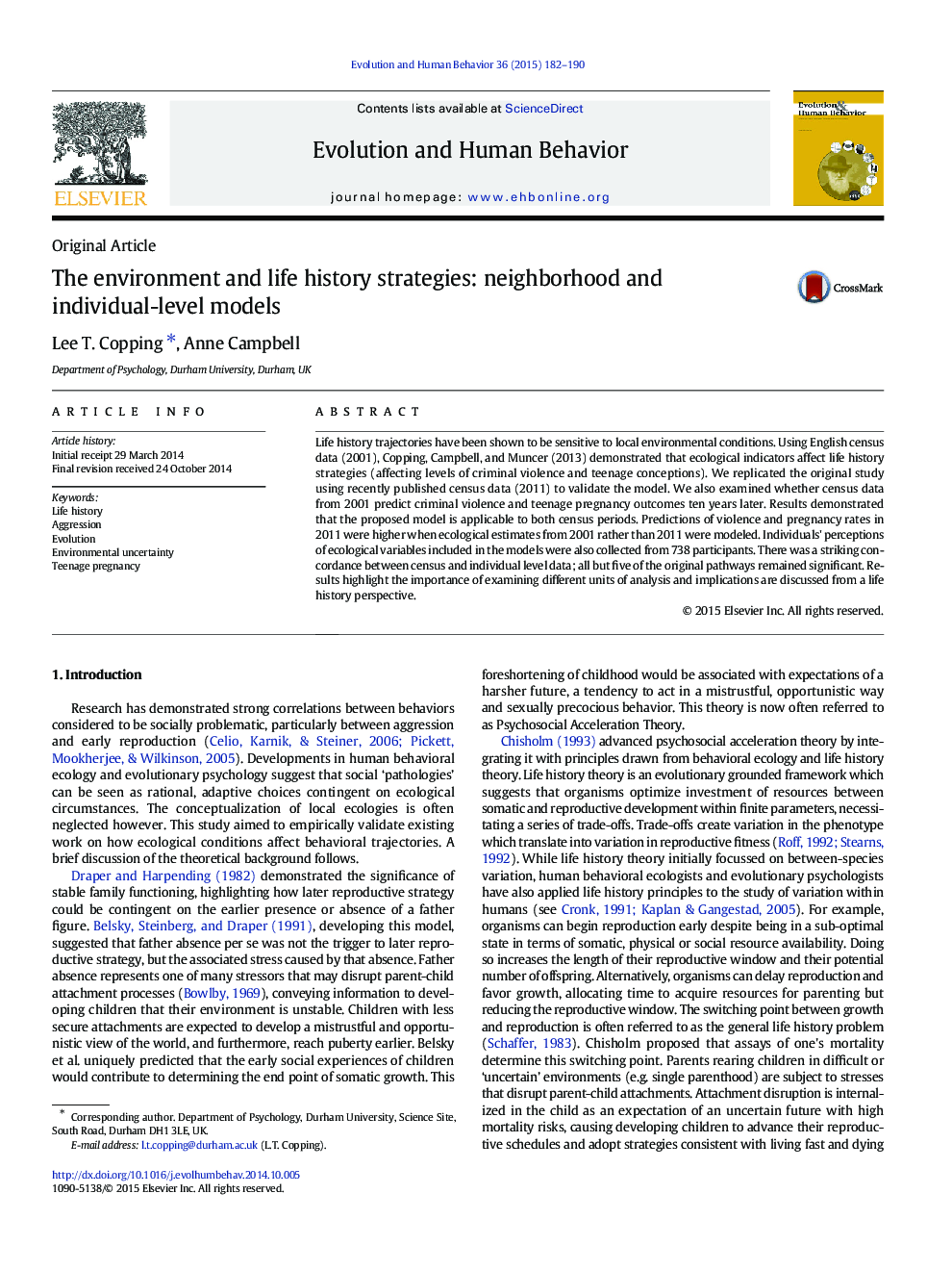| Article ID | Journal | Published Year | Pages | File Type |
|---|---|---|---|---|
| 10463976 | Evolution and Human Behavior | 2015 | 9 Pages |
Abstract
Life history trajectories have been shown to be sensitive to local environmental conditions. Using English census data (2001), Copping, Campbell, and Muncer (2013) demonstrated that ecological indicators affect life history strategies (affecting levels of criminal violence and teenage conceptions). We replicated the original study using recently published census data (2011) to validate the model. We also examined whether census data from 2001 predict criminal violence and teenage pregnancy outcomes ten years later. Results demonstrated that the proposed model is applicable to both census periods. Predictions of violence and pregnancy rates in 2011 were higher when ecological estimates from 2001 rather than 2011 were modeled. Individuals' perceptions of ecological variables included in the models were also collected from 738 participants. There was a striking concordance between census and individual level data; all but five of the original pathways remained significant. Results highlight the importance of examining different units of analysis and implications are discussed from a life history perspective.
Related Topics
Life Sciences
Agricultural and Biological Sciences
Ecology, Evolution, Behavior and Systematics
Authors
Lee T. Copping, Anne Campbell,
